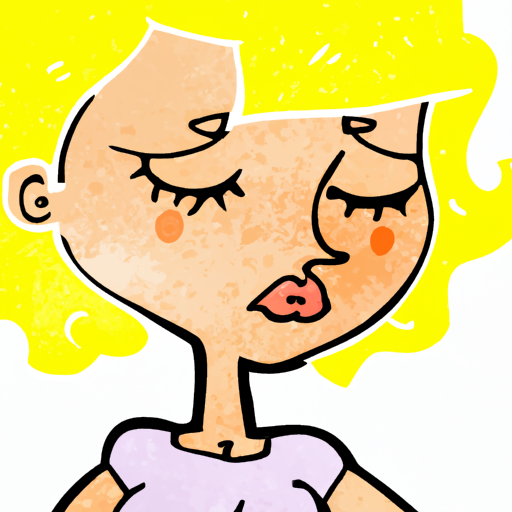
Anemia is a condition in which the body does not have enough healthy red blood cells to carry an adequate supply of oxygen to the body’s tissues. It is a common condition that affects millions of people, with women being particularly prone to developing anemia due to factors such as menstruation and pregnancy. In this article, we will discuss the 10 common symptoms of anemia in women, and how to recognize and address this condition.
1. Fatigue
One of the most common symptoms of anemia in women is fatigue. This is often due to the lack of oxygen in the body, which can leave women feeling tired and weak, even after getting a full night’s sleep. If you find yourself feeling exhausted and run down, it may be a sign of anemia.
2. Shortness of Breath
Another common symptom of anemia in women is shortness of breath. When the body is not getting enough oxygen, it can leave women feeling breathless and unable to catch their breath, especially during physical activities.
3. Pale Skin
Anemia can cause the skin to become pale or dull in color. This is due to the lack of red blood cells, which are responsible for giving the skin its healthy, rosy glow. If you notice a significant change in your skin color, it may be a sign of anemia.
4. Dizziness and Lightheadedness
Anemia can also cause dizziness and lightheadedness, especially when standing up quickly or after prolonged periods of sitting. This is due to the lack of oxygen reaching the brain, which can leave women feeling faint and disoriented.
5. Chest Pain
In some cases, anemia can cause chest pain, especially during physical activities. This is due to the heart having to work harder to pump oxygen-rich blood to the body’s tissues. If you experience chest pain, it is important to seek medical attention immediately.
6. Cold Hands and Feet
Anemia can cause poor circulation, leading to cold hands and feet. If you find yourself constantly needing to warm up your extremities, it may be a sign of anemia.
7. Headaches
Headaches can also be a common symptom of anemia in women. This is due to the lack of oxygen reaching the brain, which can lead to throbbing or pounding headaches.
8. Weakness
Anemia can also cause weakness and a general feeling of being run down. This can make it difficult to perform everyday tasks, such as carrying groceries or climbing stairs.
9. Irregular Heartbeat
Anemia can cause an irregular heartbeat, also known as arrhythmia. If you notice your heart is racing or fluttering, it may be a sign of anemia and should be evaluated by a medical professional.
10. Cognitive Difficulties
Anemia can also affect cognitive function, leading to difficulties with concentration, memory, and overall mental clarity. If you find yourself struggling with cognitive tasks, it may be a sign of anemia.
If you are experiencing any of these symptoms, it is important to see a healthcare professional for a proper diagnosis and treatment plan. Anemia can be caused by a variety of factors, including nutritional deficiencies, chronic diseases, and genetic disorders. Your healthcare provider can help determine the underlying cause of your anemia and recommend the appropriate treatment, which may include dietary changes, iron supplements, or other interventions.
In addition to seeking medical attention, there are also steps you can take to prevent anemia and support overall health and well-being. Eating a balanced diet rich in iron, vitamins, and minerals can help prevent anemia and support healthy red blood cell production. Foods such as lean meats, leafy green vegetables, and fortified cereals are excellent sources of iron and other nutrients important for a healthy blood supply.
It is also important to stay hydrated and maintain a healthy lifestyle, including regular exercise and adequate sleep. By taking proactive steps to support your overall health, you can reduce your risk of anemia and enjoy a higher quality of life.
In conclusion, anemia is a common condition that affects millions of women worldwide. Recognizing the signs and symptoms of anemia is crucial for early detection and treatment. If you are experiencing fatigue, shortness of breath, pale skin, dizziness, chest pain, cold hands and feet, headaches, weakness, irregular heartbeat, or cognitive difficulties, it is important to seek medical attention. By addressing anemia early and taking proactive steps to support overall health and well-being, women can reduce their risk of anemia and enjoy a higher quality of life.

















